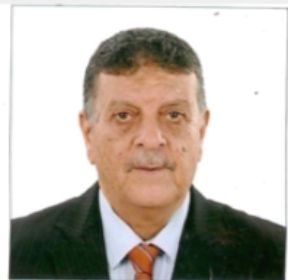
Magdy Abouzeid
EgyptTitle: Left Ventricular Performance Following Swim Training In Egyptian Wheelchair Swimmers
Abstract:
Athletes with special needs represent a growing population of sports participants. The Special Olympics is an international organization dedicated to empowering individuals who have physically and intellectual disabilities to become physically fit through sports training and competition. Subjects with parapleglegia and amputation don't use their legs in their daily lives which may affect myocardial efficiency. According to the law of use, so, not using the legs is considered to be amongst the factors affect the cardiac deficiency in general. The aim of these study is determined and compared myocardial responses to intensive training (IST), 24 weeks, 6 times per week, 120 min per unit in male wheelchair swimmers (amputee vs. paraplegic). To study these effects, seven below-knee amputee swimmers (AM) group aged (18.3 ± 0.88 yr), Ht (168.1 ± 1.67 cm), Wt (68.2 ± 3.7 kg). Compared with seven paraplegic swimmers (PR) group aged (18.6 ± 0.92 yr), Ht (167 ± 2.16 cm), Wt (68 ± 4.58 kg). All subjects group underwent two – dimension and M-mode Echocardiography at rest, and arm crank ergometry exercise test to determine max vo2 before and after (IST) All analyses were performed by spss, mean ±S. D, t. test estimated differences between the two groups and % improvement. There were significant differences for myocardial parameters and max vo2 (L/min) after (IST) for both groups. The significant observation in this study indicates that below-knee amputated swimmers showed a greater improvement in myocardial parameters and max vo2 than paraplegic swimmers. Intensive swim training (IST) improved cardiac dimension and function performance, and vo2 max in wheelchair swimmers. The active lower limb muscles increase the ability of the musculoskeletal pump in the legs to be activated also contributes to venous pooling. Persons with scl (spinal cord injury) can benefit greatly by participation in exercise activates
Biography:
Magdy Abouzeid is Professor of sport science, physical education at the University of Alexandria University, faculty of Sports Education, Egypt. He received a PhD (1983) in Physiology of exercise training from Alexandria University, Egypt. He has authored over 100 publications in sport science, sport pedagogy, and adapted physical activity, and has edited several books in the area of Aquatics sport training. Dr.Magdy abouzeid is Vice President of International Throw ball Federation, member of world organizations and institions of sport, member of scientific committee and reviewer for the"Ido movement for culture, Journal of martial Arts Anthropology, Member of Egyptian universities Promotion committee(EUPC) .Also reviewer of Horizon Research Publishing, USA (HRPUB).He has been a visiting professor at Suwon University, South Korea(2008-2009).He was awarded with several prestigious international awards including; winner of prince Feisal Bin Fahd International Prize for Arab sports research development(Sixth session(Sport Medicine-2009) ,Dr. Magdy was an IOC research scholarship winner,the Award of the 2008ICSEMIS Committee(China, Guangzhou). His current research interests include adaptation to exercise training, training in young athletes, sports and paediatric cardiology Aquatic sports training and its effect on functional capacity, sport for peace and development and another Paralympic research.
